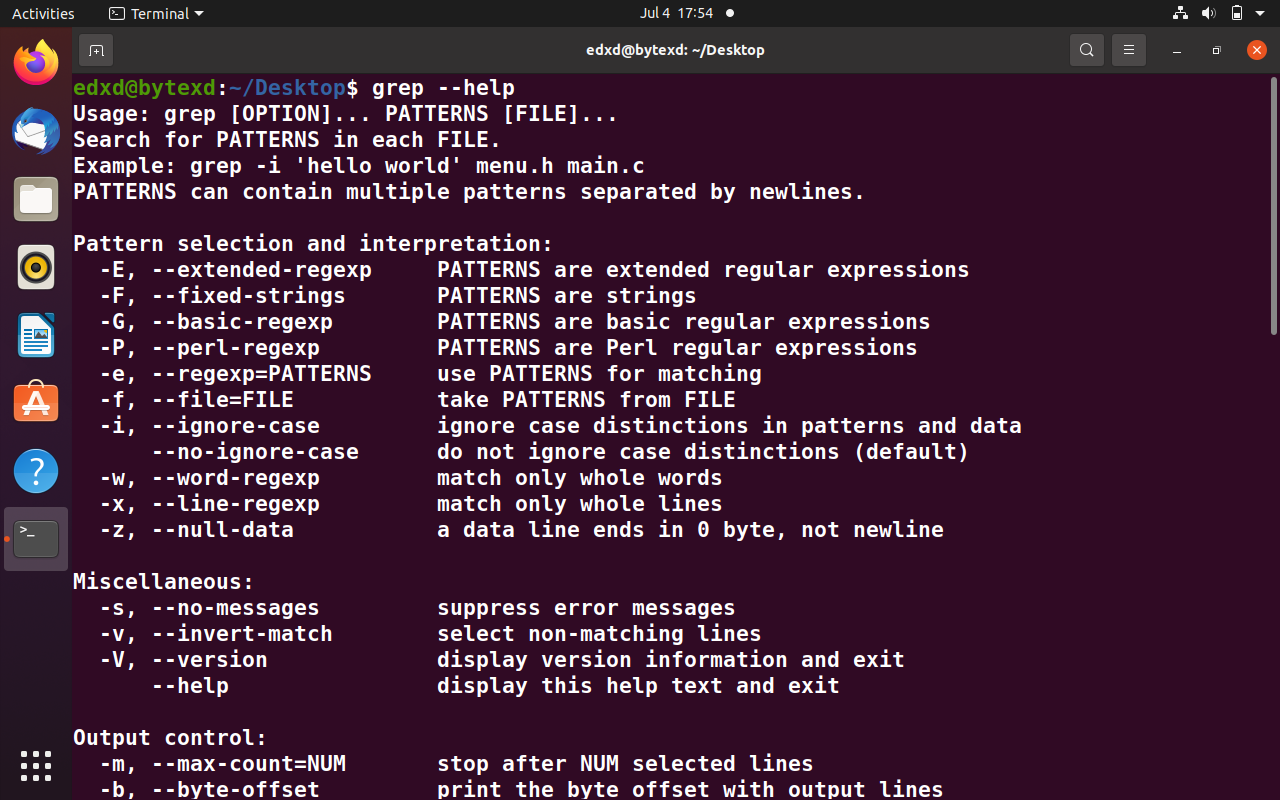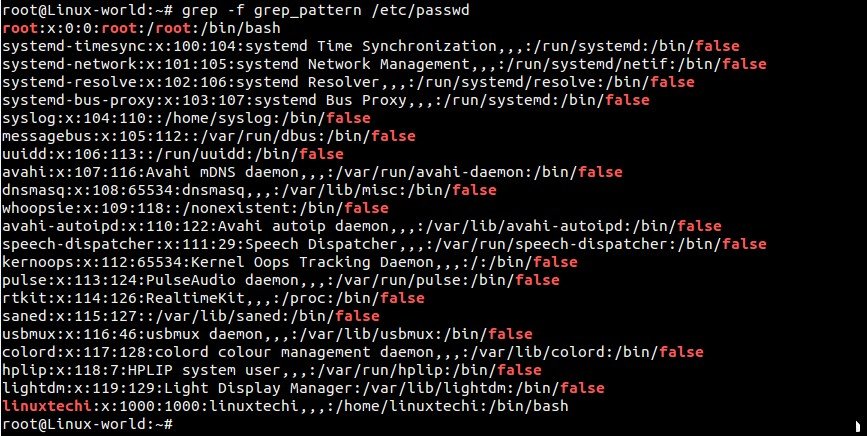

- #Proper grep usage in linux how to#
- #Proper grep usage in linux install#
- #Proper grep usage in linux code#
- #Proper grep usage in linux zip#
- #Proper grep usage in linux windows#
When the command is executed, the shell expands the asterisk to the name of any file it finds (in the current directory) which ends in ". Instead of specifying product-listing.html, we can use an asterisk (" *") and the. If we have multiple files to search, we can search them all using a wildcard in our FILE name. Searching multiple files using a wildcard Using the -i option, grep finds a match on line 23 as well. What if "our products" appears at the beginning of a sentence, or appears in all uppercase? We can specify the -i option to perform a case-insensitive match: Performing case-insensitive grep searches Our matching line is prefixed with " 18:" which tells us this corresponds to line 18 in our file. If we specify the -n option, grep will prefix each matching line with the line number: It will be even more useful if we know where the matching line appears in our file. Viewing line numbers of successful matches If we use the -color option, our successful matches will be highlighted for us: For more information, see: Regular expression quick reference. Other characters have special meanings, however - some punctuation marks, for example. In the above example, all the characters we used (letters and a space) are interpreted literally in regular expressions, so only the exact phrase will be matched. The PATTERN is interpreted by grep as a regular expression. The versioning logic outlined above tries to follow the Semantic Versioning scheme detailed here. The first stable release after beta versions is 1.0.0. When a higher level number in the version is incremented, all subsequent numbers are nulled (eg. They may contain both additional functionality and bug fixes. complete refactoring, or non-backward compatible changes (these will hopefully be very rare).
#Proper grep usage in linux code#
Major versions denote significant code modifications, eg. Minor versions indicate changes containing new functionality. changes to text files or code modifications without apparent effect to the user). Patches include bug fixes or other smaller amendments (eg. There is no restriction whatsoever on the contents of a beta package. The version numbering of such releases follows the scheme betaN, where N is a positive integer. They are stable enough to be tried by end-users, but may include bugs that should not be present in a stable release. Beta Versionsīeta versions are development versions intended to be tested by the community. The version format and semantics used in mgrep is described below.
#Proper grep usage in linux how to#
These can give you some help.) Other OS'sĪs of now, you need to figure out how to build mgrep on all other platforms, but the source code should be compilable anywhere where the std and Boost.Regex libraries are installed. (You can also find Dev-C++ solution files in the win directory along with a brief README file. Build it then in your favorite development environment.
#Proper grep usage in linux install#
If you want to compile mgrep yourself, you need to download the source code ( ) and install the Boost.Regex library.
#Proper grep usage in linux zip#
Just extract the exe from the zip file, and use it to your liking. The easiest way is to download the pre-built binary in mgrep-binary-win64.zip ( *-win32.zip before v1.1.3).
#Proper grep usage in linux windows#
Note: Windows seems to like quotation marks (") instead of apostrophes (') around command line parameters so under Windows, use mgrep like mgrep "some pattern" instead of mgrep 'some pattern'. "-ic", "-i -c" and "-ignore-case -c" all mean the same thing. Multiple options can be used simultaneously, and the single-character versions can be combined: eg. (Not allowed with -v when using multiline patterns.) (Not allowed with -c when using multiline patterns.)Ĭount number of matches. Currently, the following (most commonly used) options can be used. Those that can be used should have the same meaning and behaviour as in grep. The available functionalities, however, have the same meaning and behaviour as in grep. Mgrep is very similar to the Unix grep in its usage, but not all functionality of grep is implemented (so it is not a grep replacement).

Log file analysis, for instance, is a typical application where such a functionality is needed.

The latter is useful when you want to search for blocks of text that can be identified by several lines only. Mgrep is a simple command line utility that allows you to search for both single- and multiline patterns. Mgrep - A Multiline grep Implementation Description


 0 kommentar(er)
0 kommentar(er)
